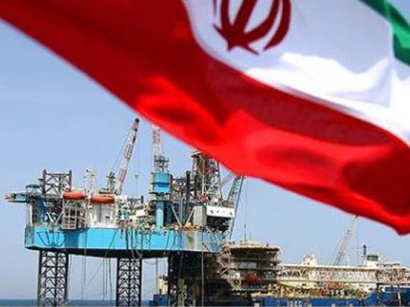Iran's fuel oil exports will plunge to as little as a third of previous levels over the next few months as winter demand forces the country to divert the product to its own power plants, according to a National Iranian Oil Company (NIOC) source.
The fall means additional revenue lost to the OPEC member, which is already down billions of petrodollars a month due to tough Western sanctions that have halved its crude exports and crippled its economy by choking Tehran's biggest money stream, Reuters reported.
The sanctions have also hobbled Iran's ability to keep its oil and gas infrastructure in good repair and start up new projects, making it hard to meet local gas demand.
Iran and six world powers failed in marathon talks over the weekend to clinch a deal to curb Tehran's nuclear programme, removing any possibility of a let-up in sanctions anytime soon.
"This year, the power stations will use more fuel oil instead (of natural gas)," said the NIOC source, who declined to be identified as he was not authorised to talk to the media.
Iranian oil minister Bijan Zanganeh said on Oct. 1 that the country faces serious gas shortages the next two years because it has not been able to develop the South Pars field fast enough, forcing it to use oil products to fire power stations.
Sanctions have made it difficult to track Iranian fuel oil flows. The country typically exports about 600,000 tonnes of fuel oil a month, about 130,000 barrels per day, most of which heads to China and the rest of Asia, trade sources said.
Exports of the heavy fuel have reached as much as 1 million tonnes in some months. But the lower volumes that started at end-September and are expected to last until early January will drop monthly shipments to about 200,000-300,000 tonnes, the NIOC source said.
Iran's low density, low sulphur fuel oil is suitable both as a feedstock for the smaller, independent refineries in China, often called teapots, and for blending with heavier grades.
The impact of the drop in Iranian exports is already evident in Asia, with premiums to benchmark prices skyrocketing for similar grades from other sources such as India, Jubail, Thailand and Malaysia, trade sources said.
BUNKERS, LOW-DENSITY
Fuel oil prices in United Arab Emirates' Fujairah port, another key hub for the product, have jumped. Delivered bunker prices there - usually the lowest in Asia - rose above Singapore's marine fuel oil quotes on Oct. 24 and have since widened to about $20 a tonne, shipping reports showed.
The double-digit premium "suggests that the Iranian material is very tight," said a Singapore-based trader.
The tightness has also drawn supplies from other sources into Fujairah.
"We've seen a big jump in Black Sea and Mediterranean barrels going to Fujairah, which also suggests they are tight on low-density and low-sulphur. That is exactly what the Iranian material provides," the Singapore-based trader added.
Seasonal refinery turnarounds in Europe, another key source of low-density fuel oil, have added to the region's supply woes, trade sources said.
About 7.5 million tonnes of fuel oil from the West is expected to arrive in Asia over October-November, more than half of which is to come from the U.S. Gulf Coast, Venezuela and Mexico.
Fuel oil from the Atlantic region is usually high-density and needs to be blended with better quality fuel oil such as that from Iran. With Iranian supplies falling, premiums for other low-density grades are expected to rise further, trade sources said.
"Unless the U.S. does something about the sanctions, the market will continue to pay very high prices for these low-density cargoes," said another Singapore-based trader.






